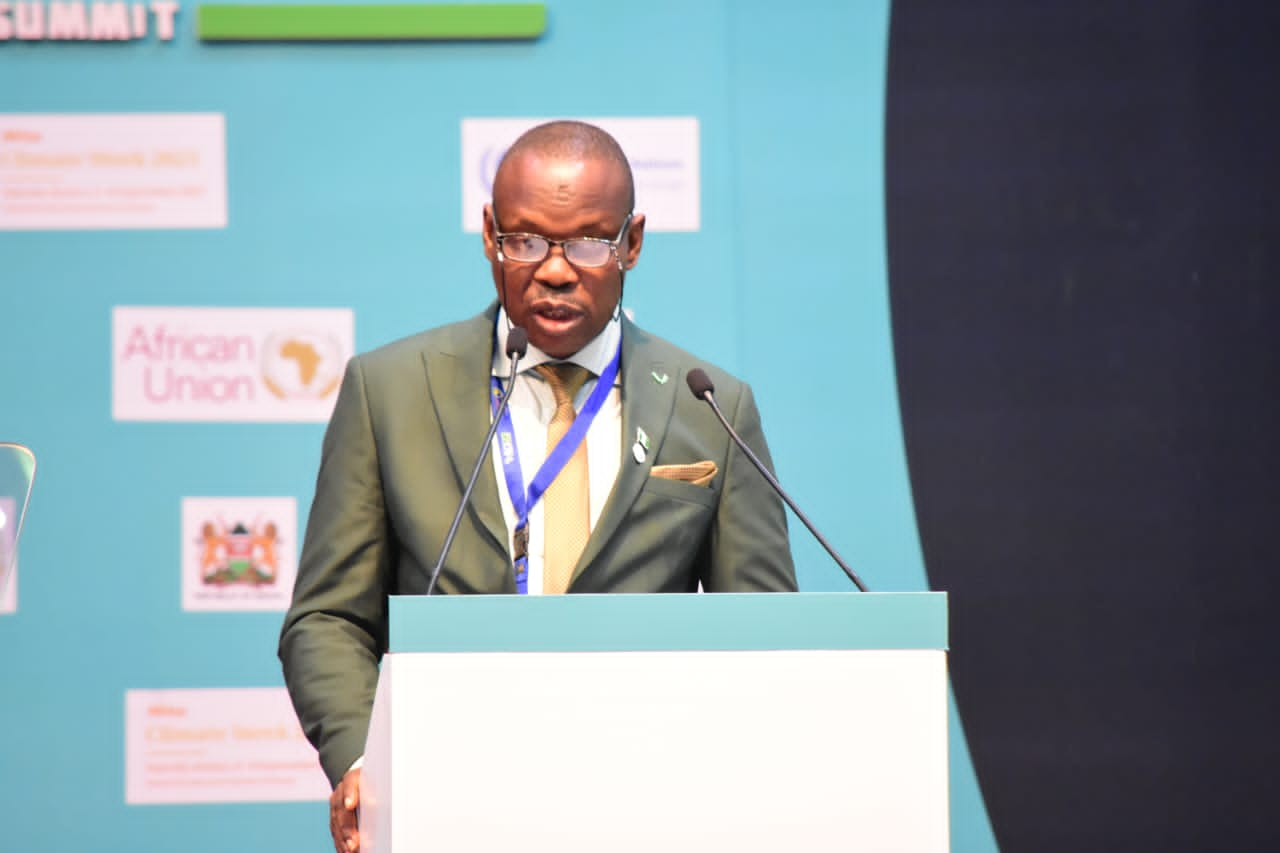The Minister of State for Environment, Dr Iziaq Salako, has said the ministry through the National Oil Spill Detection and Response Agency will be commencing periodic review of the plans of international and indigenous oil companies to ensure they stay on course to end routine gas flaring by 2030.
Salako said this in Abuja on Tuesday at the national stakeholders engagement meeting on methane mitigation and reduction in Nigeria’s oil and gas sector.
Methane, a potent greenhouse gas with significant warning potential compared to carbon dioxide, poses a major threat to the health and well-being of current and future generations and climate protection goals.
Reducing methane emissions, especially in the oil and gas sector will strengthen climate action and unlock benefits for public health, food security, and economic development.
Salako said practical steps are being taken to address methane emissions in the country.
He noted that “Collaborative efforts of government institutions have led to the development of methane guidelines. In addition, the Federal Ministry of Environment through the National Oil Spill Detection and Response Agency will be commencing the periodic review of the plans of international and indigenous oil companies to ensure they stay on course to end routine gas flaring by latest 2030.
“Furthermore, Nigeria is poised to embark on methane reduction projects that will enable Nigeria’s commitment to methane reduction and meeting net zero emissions by 2060. It is therefore reassuring to see initiatives such as the project methane mitigation and reduction in Nigeria’s oil and gas sector, which is being initiated with today’s event.
“This national stakeholders engagement event is expected to serve as a platform to discuss the complexities of methane mitigation and reduction within Nigeria’s oil and gas industry. Presentations here today, will provide insights and overview on existing policies, implementation strategies, including key stakeholders involved in these efforts. Through rigorous research and collaborative efforts, we can identify gaps, challenges, and opportunities for effective national actions.”
The minister stated that President Bola Tinubu is committed to environmental sustainability and climate action in line with the multilateral environmental agreements that Nigeria is party to.
The Permanent Secretary of the ministry, Mahmud Kambari said it is necessary to address methane emissions in the oil and gas industry as the stakes and opportunities are high.
Kambari said, “Let’s harness our collective expertise, innovation, and resources to drive sustainable development, foster economic growth, and enhance energy security in Nigeria and beyond.
“As we engage in today’s discussions, let us be guided with openness, and inclusivity. challenge assumptions, and explore creative solutions that align with the principles of equity, justice, and environmental integrity.”
In his remarks, the Executive Director of the Africa Policy Research Institute, Dr Olumide Abimbola, noted that there is a need to address the pressing impacts of methane emissions on climate and environment.
Abimbola, who was represented by Mr Chibuikem Agbaegbu stated that methane, a potent greenhouse gas, poses a significant threat to both the health of our planet and the well-being of current and future generations.
“Recognizing this urgent need, APRI, in close collaboration with the Department of Climate Change, Federal Ministry of Environment, has embarked on a crucial project focused on methane mitigation and reduction within Nigeria’s oil and gas sector.
“This project, funded by the Government of Canada through Environment and Climate Change Canada, underscores the strategic importance of taking proactive steps to reduce methane emissions. Not only does it align with Nigeria’s climate action commitments, but it also offers opportunities to unlock co-benefits for public health, food security, and economic development, in line with Nigeria’s national and sustainable development goals.
“Today’s event marks a significant milestone in our collective efforts. It provides a platform for stakeholders from diverse sectors to come together, share insights, and chart a unified course towards sustainable methane mitigation and reduction in Nigeria. Through constructive dialogue and collaboration, we aim to identify challenges, explore opportunities, and pave the way for effective and sustained action,” he said.
SOURCE: PUNCHNG


